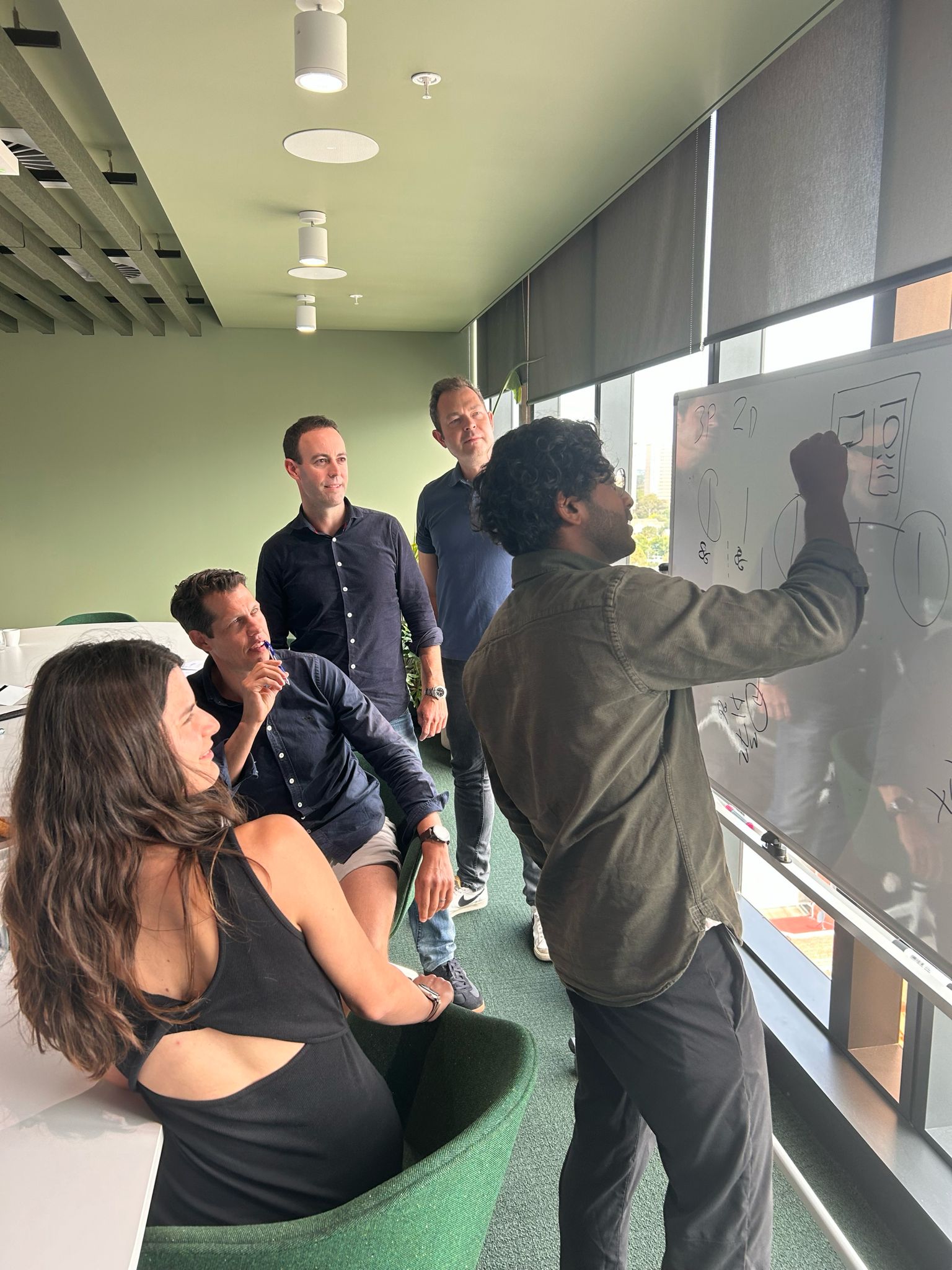Thank you! Your submission has been received!
Oops! Something went wrong while submitting the form.

Mayfly collaborated with the MUCUDU team to build a low-code MVP for their hospitality tech platform, which includes loyalty management, peer-to-peer monetary gifting, and Tab functionality.
Beyond the standard integrations with Stripe, Apple, and Google for login and payments, we incorporated advanced integrations with Point of Sale systems like Doshii and AI-driven recommendations that personalize the dining experience.
The concept of intelligent systems has fascinated scientists and innovators for decades. What began as a distant idea in the realm of science fiction has now evolved into a powerful reality with AI agents revolutionizing software development and business operations. To understand where we are today, let’s take a look at the journey of AI agents—from their conceptual beginnings to their current role as transformative tools in software development.
.png)
The seeds of artificial intelligence were sown in the mid-20th century, driven by pioneers like Alan Turing, who proposed the idea of a "thinking machine." Early AI research focused on symbolic reasoning and rule-based systems, laying the groundwork for intelligent software.
Key milestones during this era included:
While these systems were groundbreaking, they lacked adaptability and autonomy, which limited their scalability and practical use.
The 1980s and 1990s saw the emergence of software agents, precursors to modern AI agents. These programs were designed to perform tasks autonomously based on predefined rules, making them highly efficient for repetitive workflows.
Key Developments:
However, these systems were limited by the technology of the time—they couldn’t learn, adapt, or process natural language effectively.
The advent of machine learning (ML) in the 2000s marked a turning point. Instead of relying solely on pre-coded rules, ML enabled systems to learn from data, making them far more versatile and intelligent.
Key Advances:
During this era, software development began to integrate AI-powered features, such as predictive analytics, recommendation engines, and chatbots.
Today, we are witnessing the dawn of the AI agent revolution, where intelligent systems are no longer just tools—they are autonomous collaborators capable of executing tasks, learning, and improving.
What Defines Modern AI Agents?
Key Examples:

AI agents are changing the way software is designed, built, and deployed:
As AI agents continue to evolve, their impact on software development will only grow:
The journey of AI agents—from early rule-based systems to today’s autonomous, intelligent systems—reflects decades of innovation and progress. As they become more advanced, AI agents are set to play a central role in the future of software development, transforming how we build, interact with, and benefit from technology.
At Mayfly Ventures, we’re not just building AI agents—we’re building the future of software development. If you’re ready to harness the power of AI agents for your business, let’s chat.
.webp)

We’re a team of engineers, designers and venture builders. We partner with industry experts to build and launch AI and software ventures.
We combine your insight and network with our proven playbook and venture building expertise to turn bold ideas into globally scalable products.
We back ventures with capital. With skin in the game our support goes far beyond deliverables, we’re an invested partner in your success.
Here to support from idea conception, to commercialisation and well beyond launch.
You're an industry insider with a deep understanding of the pain points and inefficiencies in your sector which are prime for AI disruption.
You have the network to access early adopters locally with the conviction to scale globally.
You are looking for a partner experienced in launching tech ventures to guide you the process of building, launching and scaling an Al platform to transform your industry.

